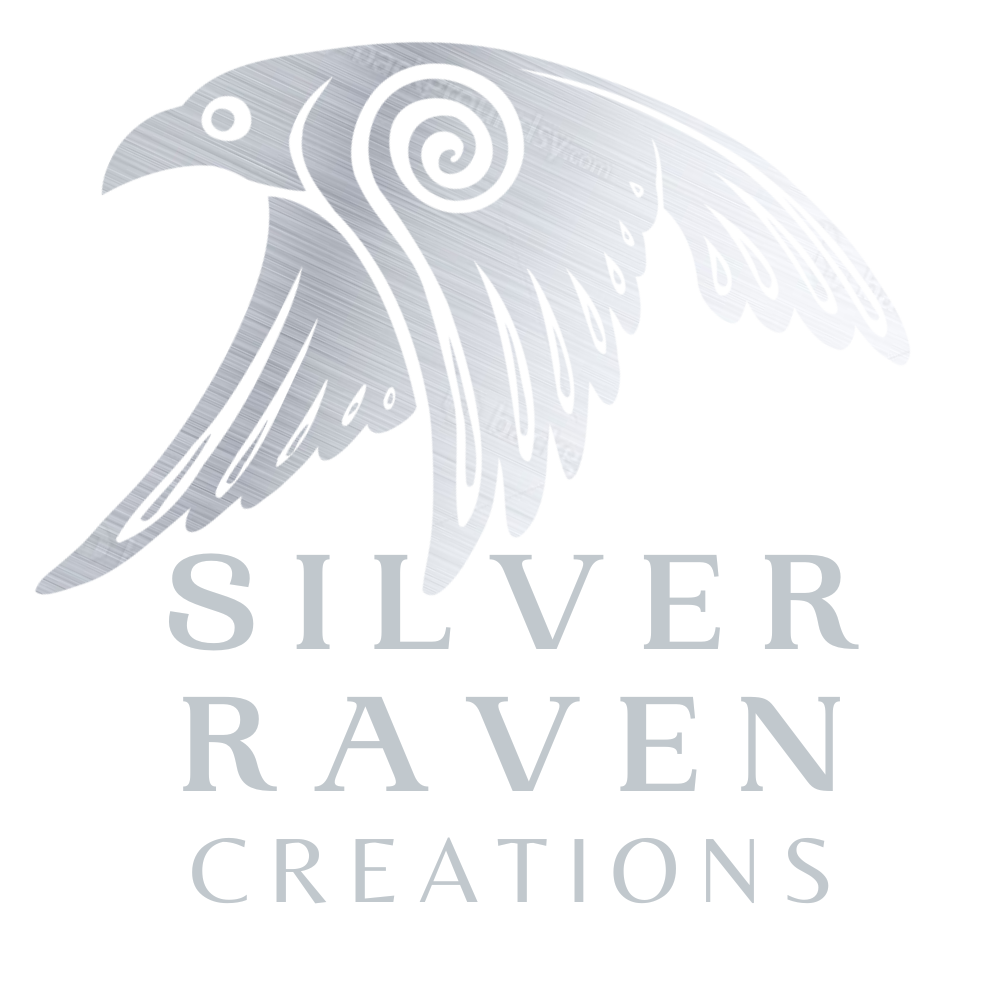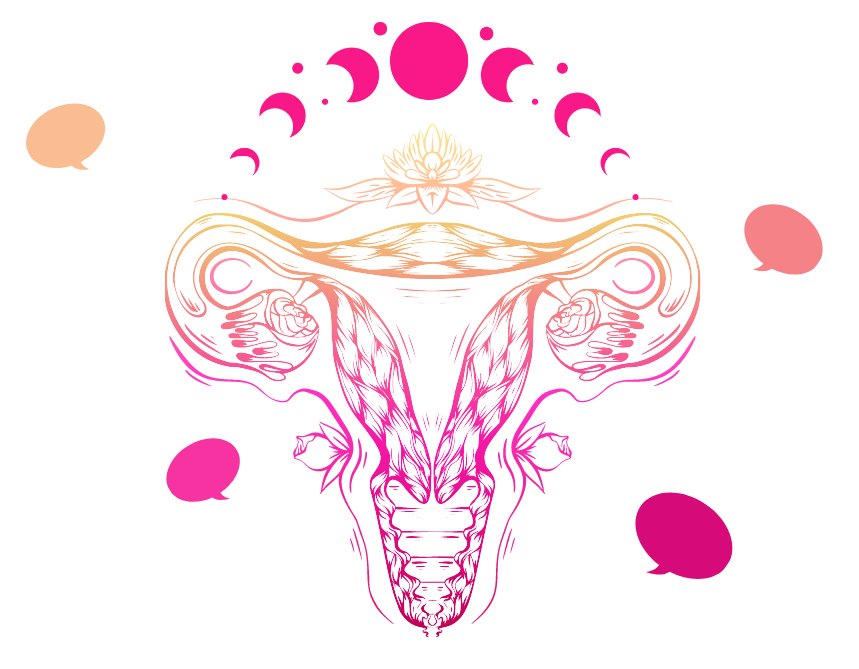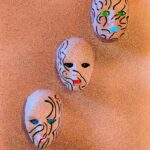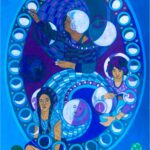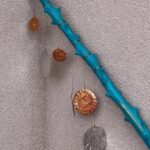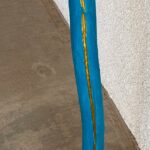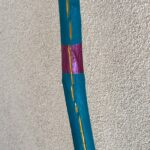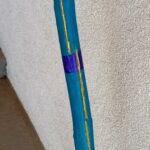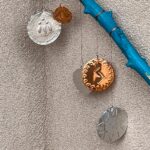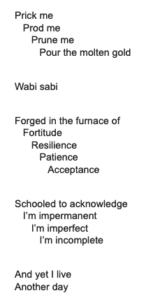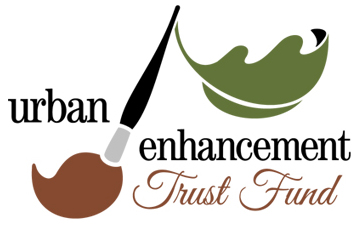Morgan O'Donnell
Hi, I'm Morgan. I'm the creator and founder behind "It's Time to Talk: The Menopause Art Exhibit." I hope you will take time to explore the wonderful work in our online gallery and learn more about The Menopause Art Project.
One of my shero’s is Ms. Frizzle from the Magic School Bus whose catchphrase is “Take chances, make mistakes,
get messy!” This is how I tend to approach my artistic ideas. I get an idea and then start experimenting to see how
I can shift the idea from conception to creation. Working with my hands gives me the space to get out of my often
overly busy head and allows me to tap into my intuitive side. Rereading and/or reframing mythologies from the
female perspective often powers my pieces. Another aspect that has become increasingly important is using
materials I already have on hand such as cardboard, papier-mâché, found objects, repurposing household items,
and leftover art supplies.
Please feel free to explore the rest of this website for more info about me and my work. www.silverravencreations.com and www.silverravencreations.com/about/.
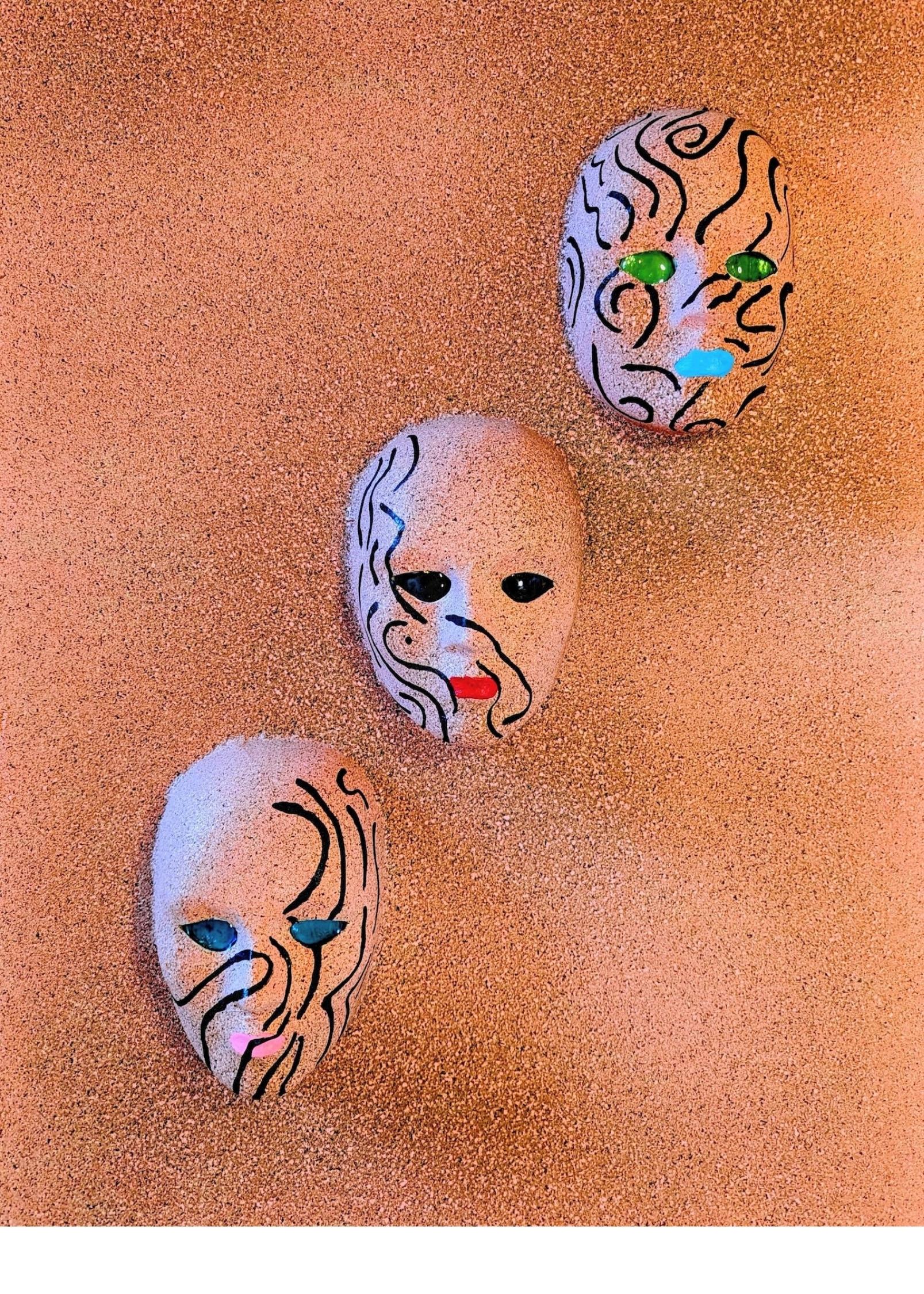
Identities - $250
Mixed media on recycled acoustic tile. Unframed.
32.5 x 23.5 inches
Menopause can be a time of shifting identities for women. Indeed, in previous generations it was often simply known as The Change. From mother to empty nester. Maybe her career identity is shifting as well. Some women leave the workplace or transition to part-time or less stressful jobs. Others feel the fire of new creative energies and launch themselves full throttle into corporate careers after years of staying at home or putting her career on the backburner.
This piece can be purchased through the National Minority Health Alliance's THEart Alliance. The Buy Now button will take you there.
Unmasked - $225
Mixed media on wood canvas. Unframed.
8 x 8 inches
“Julie Turner-Cobb: Women were finding that they didn’t have the emotional vocabulary to explain it, particularly to health-care professionals. Previously, they may have learned how to cope or how to mask things, and suddenly they felt that they weren’t able to cope any longer. And those skills that they’d had before, that they had perhaps honed over several years, just weren’t working for them anymore, because of the changes they were experiencing during menopause. For some women, it meant that that was when they were diagnosed with autism.[emphasis mine]”
Autism and menopause: Q&A with Rachel Moseley and Julie Turner-Cobb
by Shelby Grebbin 7 April 2022 in Spectrum
The glittering mirror pieces represent the mask, reflecting back what society wants to see. Underneath lies the true person.
This piece can be purchased through the National Minority Health Alliance's THEart Alliance. The Buy Now button will take you there.
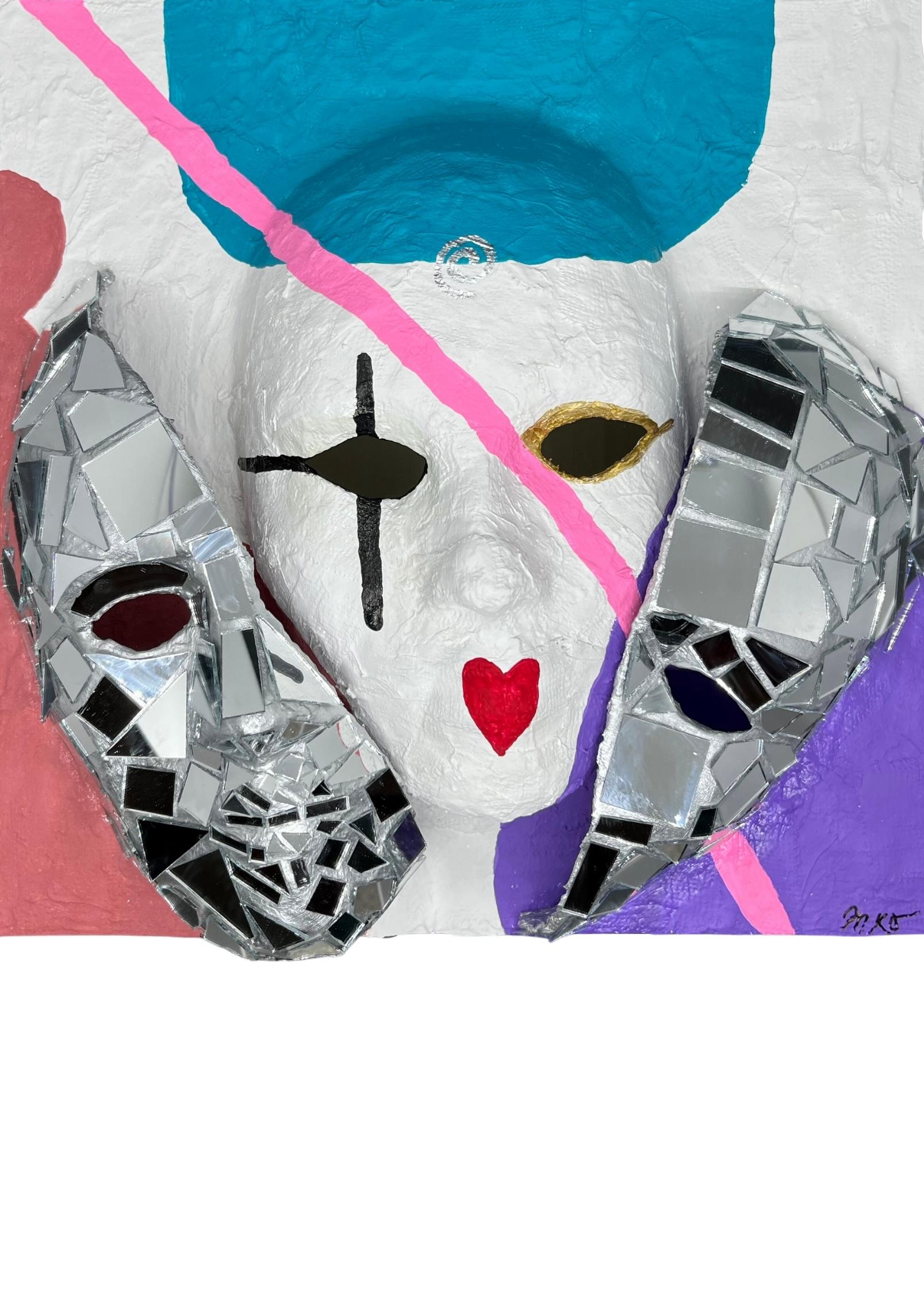
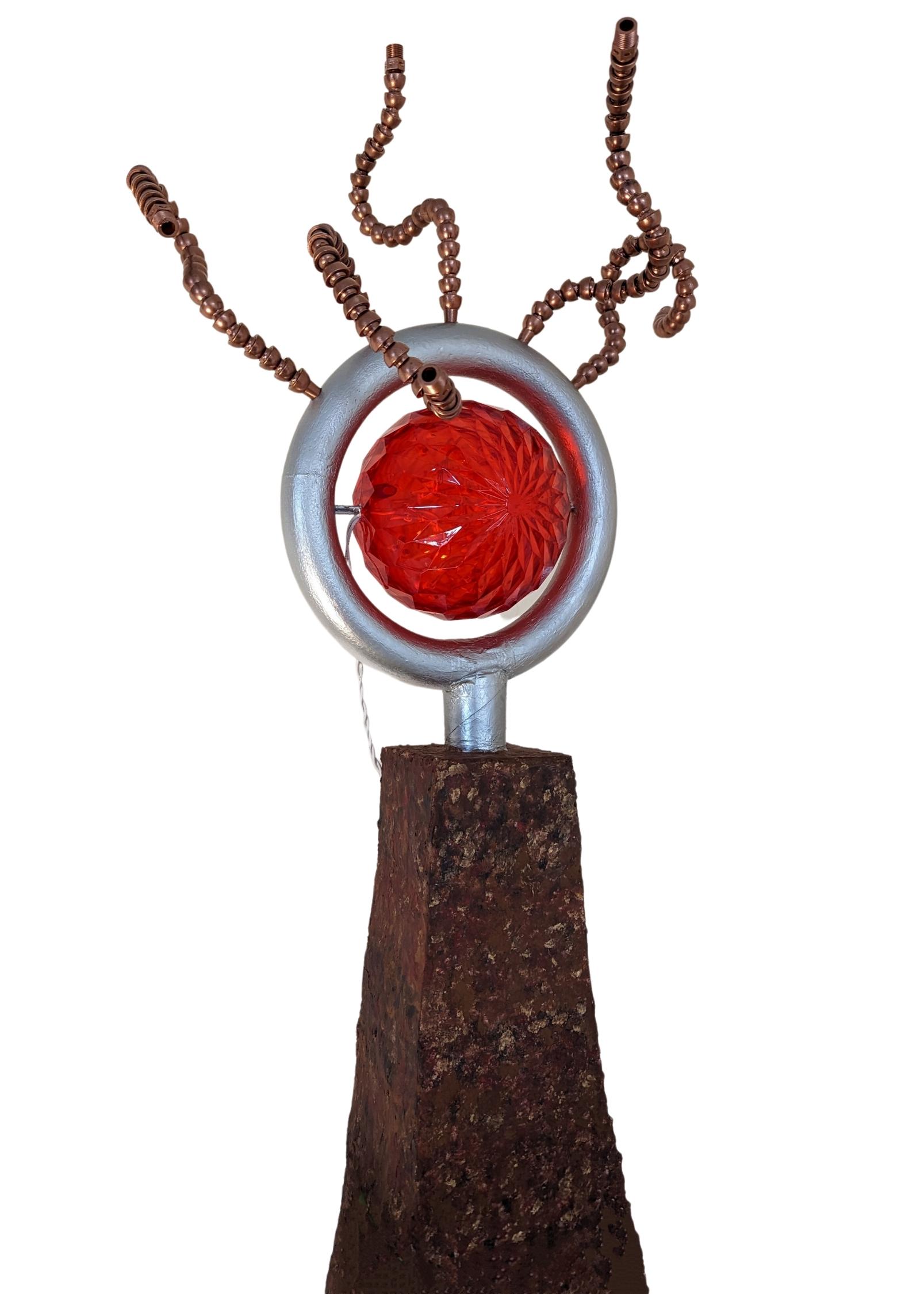
Eye of Medusa - Not for Sale
Foam and plastic sculpture.
32 x 17 x 5.5 inches
This was inspired in part by the article - "The face of our own rage"- a feminist interpretation of Greek mythological figure Medusa and female rage.”
By Gabby Tuzzeo in Boshemia Magazine
Menopause can be a time of heightened anger. It can blow up out of nowhere surprising everyone, including the woman herself. Our society has long taught women that they should hide their anger or suppress it. But this can be a time when women finally allow themselves to feel and express that forbidden emotion. While it may be disturbing for the rest of society, it can be a welcome relief and empowering for women.
Note: This piece is currently undergoing repairs and will not be at the physical exhibit. However, since it address an important topic we wanted to keep in the online gallery.
Changing Woman - $200
Embossed metal in recycled black frame.
12.5 x 10.5 inches
Menopause is all about change. Changing Woman is inspired by different goddesses and deities and many of the symbols represent transformation. Change can be scary, but it is also powerful. Changing Woman encourages women to embrace the transformation that menopause brings.
This piece can be purchased through the National Minority Health Alliance's THEart Alliance. The Buy Now button will take you there.

Shamanka’s Staff - SOLD
Found art/mixed media.
6.5 feet
Shamanka - a female shaman.
I saw this tree branch on a walk one morning. It looked interesting and I almost picked it up, but instead continued on my walk. I noticed it again on my next walk and felt a pull to pick it up and use it in an art project. On my third walk, I could no longer ignore that it was indeed calling me. I brought it home and immediately noticed the cracks in it.
My menopause support group had been talking about Kintsugi and one woman said she thought she was like a piece of kintsugi pottery where the broken pottery is repaired with gold and ends up more beautiful than before. At the same time another friend had written a poem about kintsugi in response to her own health challenges. Synchronicity. And so Shamanka’s staff was created!
Support Menopause Awareness
1.3 Million Women Enter Menopause Each Year. We Have to Stop Ignoring Them.
Glamour, October 2020
What is Menopause?
Actual menopause is when a woman/person has gone 12 consecutive months without a menstrual period. Menopause is often used as an umbrella term for the 3 stages of menopause: perimenopause, which can begin 8-10 years prior to menopause; menopause; and postmenopause, where symptoms can continue to be experienced for a decade or more. All 3 stages can be marked by a variety of symptoms (some research has suggested up to 34 different symptoms) or, for some women/people, no symptoms, or very mild symptoms.
About This Project
When I first started thinking about this project I didn’t see a lot of people talking about menopause. Heck, when I started experiencing perimenopause, my first doctor chalked things up to stress at work and prescribed anti-anxiety medication. This was a woman doctor too. Eventually I found a doctor who knew about menopause and was fortunate to have my own support group born out of a program run by a company called Gennev.
Now, a few years later there are several FemTech companies focused on menopause and women’s health. I see more and more female celebrities talking about menopause and their experiences, including Oprah, Michelle Obama, Gwyneth Paltrow, and more.
This is wonderful, but not everybody pays attention to celebrities. Not everyone can afford to get healthcare or education from private pay FemTech companies. So I wanted to help raise awareness about this topic that every woman who is fortunate enough to live long enough will experience. I also wanted to share women’s voices on the topic. And I wanted to do it in a way that resonates with me and that is art. I was fortunate that my proposal also resonated with the City of Albuquerque’s UETF Resiliency Residency committee! More recently, The National Minority Health Association has also signed on to help support the project.
Menopause and Work
“Menopause often intersects with a critical career stage. It usually occurs between ages 45 and 55 – which is also the age bracket during which women are most likely to move into top leadership positions (technically 53.46 years old for a CEO). Since menopause generally lasts between seven and 14 years, millions of postmenopausal women are coming into management and top leadership roles while experiencing mild to severe symptoms such as depression, anxiety, sleep deprivation and cognitive impairment, to name a few. A recent Korn Ferry analysis finds that women hold only around 25% of C-suite positions. If we want to continue to move the needle on the number of women in leadership roles and maintain their valuable contributions to a company’s bottom line, I believe we need to be more open about what menopause is and how it affects both individuals and organizations.”
“It’s Time to Start Talking About Menopause at Work” by Jeneva Patterson for Harvard Business Review
